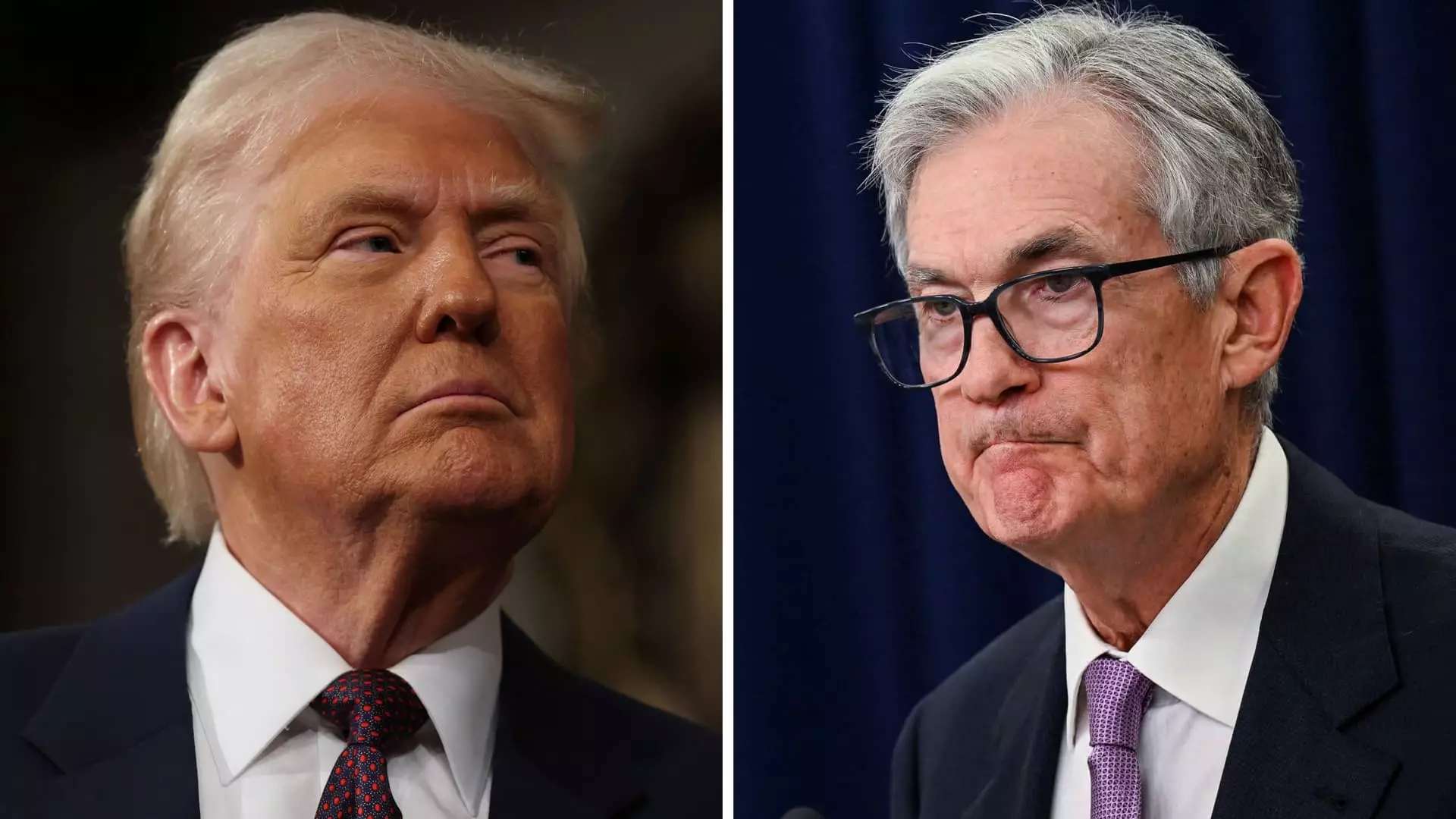In what can only be described as an escalating feud, President Donald Trump has ratcheted up his public criticism of Federal Reserve Chair Jerome Powell. This conflict reflects not just a personal vendetta but a deeper ideological rift over how best to manage the nation’s economic future. Trump’s grievances aren’t without precedent; he has long been an advocate for looser monetary policies, particularly during his administration. However, as Powell’s independence from political influence remains a bulwark of the Federal Reserve’s design, the administration’s alleged attempts to undermine this autonomy signal a troubling trend.
Things escalated dramatically following what Trump perceives as Powell’s failure to respond effectively to economic conditions. Trump articulated his frustrations during a media Q&A, asserting that if only there were a more competent Fed Chair, interest rates would be on a downward trajectory. To make his point, Trump cherry-picked examples of falling prices—a selective interpretation of economic indicators that should raise eyebrows among those who advocate for a more nuanced understanding of the economy. The problem with such myopic reasoning is that it risks distorting the broader spectrum of economic health, fueling public discourse with misleading narratives.
The Dangerous Dance of Dissent
Further complicating matters, White House economic adviser Kevin Hassett suggested that Trump’s team is seriously contemplating the option to dismiss Powell—a move that, should it be pursued, would evoke a constitutional crisis. It serves as a stark reminder of the precarious balance between political power and economic oversight. Trump’s remark that “Powell’s termination cannot come fast enough” showcases an alarming willingness to undermine the institution that has worked towards economic stability, even if it means sacrificing long-term credibility for short-term political gain.
Powell’s own statements reveal a commitment to the Fed’s dual mandate of fostering maximum employment while stabilizing prices. His cautious approach is grounded in a deeper understanding of economic cycles, acknowledging that rash policy changes could not just jeopardize the current economy but also disrupt the stability of financial markets long into the future. Powell’s candid acknowledgment of the challenges posed by Trump’s tariff policies highlights a fundamental clash in economic philosophy—a clash that is deepening into an ideological battleground rather than a collaborative effort toward solutions.
A Risk to Financial Integrity
Senator Elizabeth Warren’s remarks drawing attention to the potential ramifications of a president possessing the power to unilaterally fire the Fed chair cannot be understated. This isn’t merely a hypothetical concern but a pressing reality that could unravel the very fabric of economic governance. The implications of such an action extend far beyond the confines of Washington, reaching deep into the stability and operational integrity of U.S. financial markets. By threatening to politicize an independent body, Trump risks creating an environment of uncertainty and volatility that could drive investors away and diminish market confidence.
In spite of this tense backdrop, it is crucial that we recognize the motivations behind Trump’s comments. His desire to push for lower interest rates stems from a typical political play—stimulating immediate economic growth that ultimately favors incumbents around election time. Yet this focus on boosting short-term results overlooks the long-standing importance of sustainable economic policies. Fostering an environment that prioritizes temporary gains while disregarding the measures that lead to long-term success will inevitably bite back, impacting everyday Americans more severely than any political manipulation.
The Costs of Political Theater
In this convoluted saga, the political theater increasingly takes center stage while substantive economic policymaking fades into the background. The turbulence within the White House threatens to distract from crucial discussions about fiscal responsibility, wage growth, and financial regulations. Congress must remain vigilant and advocate for policies that protect the Fed’s independence, as well as ensure a balanced approach to economic decision-making.
The reality is that regardless of political belief, the economy affects all citizens. As such, it demands a collaborative effort rather than tribalistic warfare. Economic policies ought to withstand the test of time and abide by sound principles that do not yield to the whims of fluctuating political sentiments. Sadly, with the current trajectory of confrontation and discord, both the fabric of our economic system and the well-being of the populace hang in a delicate balance. Each remark and each tense exchange becomes a blight upon the critical discussions we should be fostering instead.

Leave a Reply